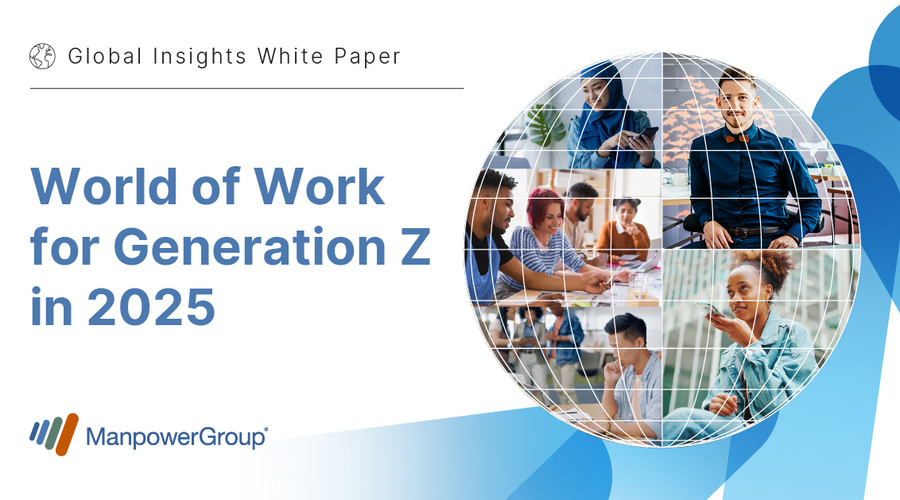In a time of massive workforce disruption, Gen Z remains steadfast in their flexibility, while seeking opportunities for growth and positive well-being encouraged by employers, notes ManpowerGroup’s latest Global Insights White Paper: World of Work for Generation Z in 2025.
Key findings include:
Generation Z (born 1996-2012) will comprise approximately one-third of the global workforce in 2030. The majority of the generation has entered or will enter the workforce during a period of massive disruption – from the COVID-19 pandemic to geopolitical unrest and widespread digital transformation and automation.
According to ManpowerGroup’s 2024 Global Talent Barometer Research, global Gen Zers’ current lives as “corporate Zoomers” are a mixed proposition. Gen Z workers were the most likely (47%) of all age groups to say they will voluntarily leave their current roles in the next six months, but were also the least confident they could find a new job that meets their needs.
Despite some persistent concerns, employers are undertaking a variety of strategies to make their workplaces more palatable to Gen Z, including improving technology tools (76%), workforce well-being (75%), work hours flexibility (73%), increasing compensation (73%), and career development opportunities (73%).
The Gen Zers of 2030 will be more accustomed to remote or hybrid professional work and frontline work infused with AI-based technologies and automation. Gen Zers are likely to amass an unprecedented number of diverse, transferable skills that they can use to redeploy into new roles as business and economic conditions continue to evolve.
For more insight into how employers can keep their Gen Z pipelines moving, download the full report.

